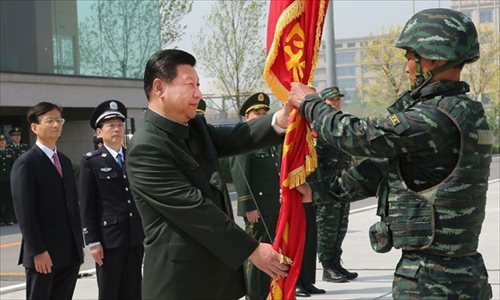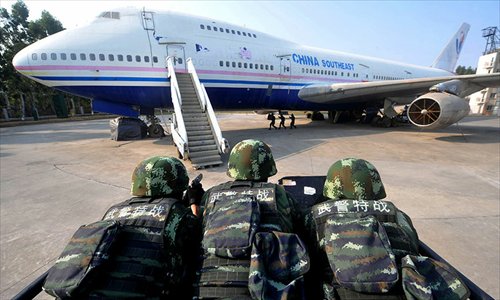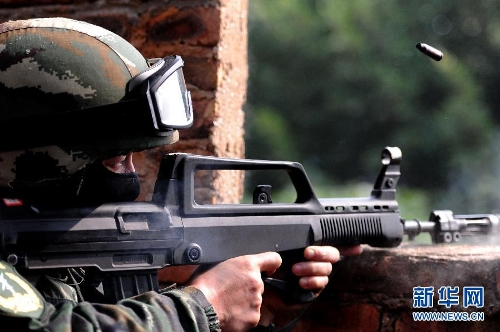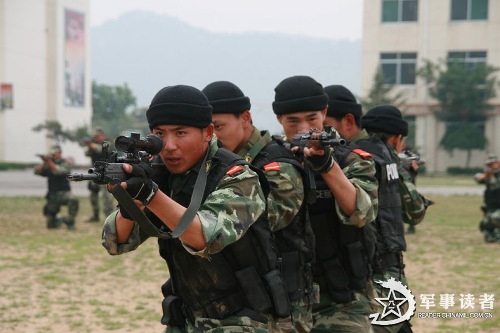HOME >>
Top cops: Survey of the world's elite police forces
Source:Globaltimes.cn Published: 2014-4-10 17:44:00
| Editor's note |
| Latest News |
| Xi calls for better anti-terror forces Chinese President Xi Jinping on Wednesday called on the country's armed police forces to forcefully act against terrorism, to safeguard national security and social stability. Chinese army sets up team to supervise training China's armed forces have set up a leading team to direct work on military training to improve combat capabilities, the flagship newspaper of the People's Liberation Army (PLA) reported on April 3. |
| Graphics |
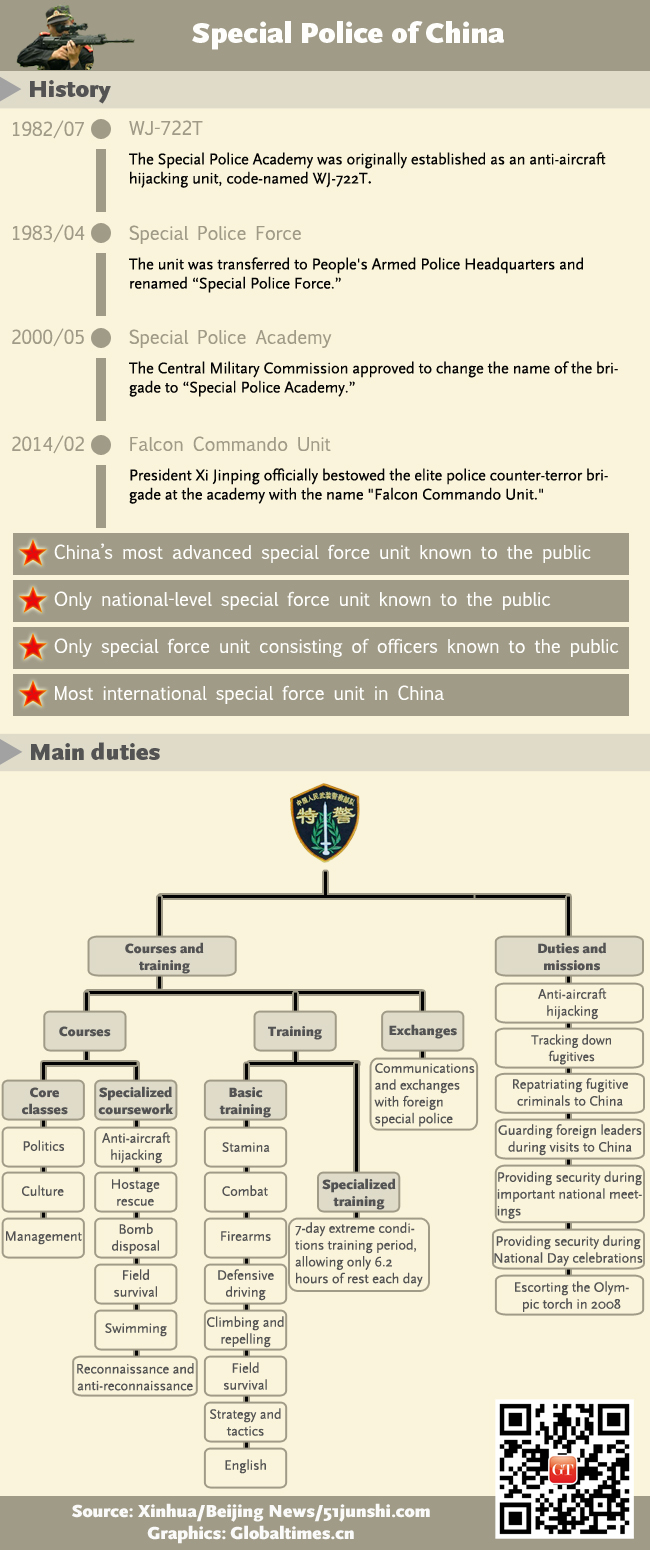
1
| Photos |
| Special forces in the world |
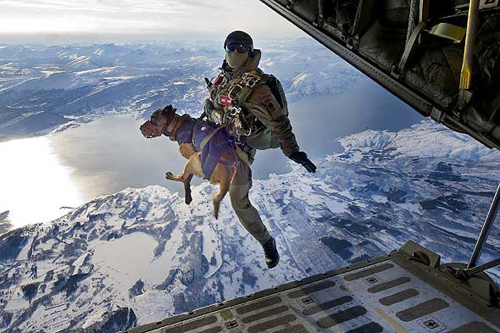 |
Special Air Service, United Kingdom The Special Air Service (SAS), part of the United Kingdom Special Forces, was set up in 1941 during the Second World War and has served as a model for Special Forces around the world. The Regular Army 22 SAS became a household name after successfully attacking the Iranian Embassy in London and rescuing hostages during the 1980 Iranian Embassy siege. It currently comprises one regular regiment and two territorial regiments, and is primarily tasked with counter-terrorism missions. |
 |
Delta Force, United States The Delta Force, also known as 1st Special Forces Operational Detachment-Delta, was officially approved in 1997 after decades of painstaking efforts. Charlie Beckwith, a Special Forces officer, highlighted the significance of establishing an SAS-type unit in the U.S. after his return in the early 1960s. It was gradually formed after combating numerous terrorist attacks in the 1970s. Delta Force's structure mimics that of the British 22 Special Air Service Regiment, with a total of 2500 soldiers. The Force's main tasks currently include counter-terrorism, direct action and national intervention operations. |
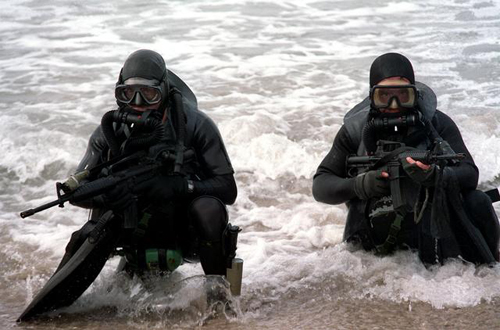 |
Navy SEALs, United States The Navy SEALs, also known as the United States Navy's Sea, Air and Land Teams, date back to the Second World War with its roots firmly planted in the Amphibious Scout and Raider School and Naval Combat Demolition Unit. SEALs are male members of the United States Navy. The Joint Navy SEALs and CIA operations once again proved their executive efficiency most recently in the finding and killing of Osama bin Laden in Pakistan. The current team of 200 high-caliber soldiers is entitled to conduct low intensity operations and handle emergency situations. |
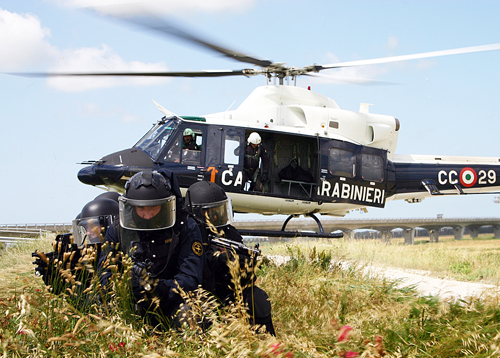 |
GSG 9, Germany GSG 9 der Bundespolizei, also known as Border Police Group 9 as a unit of the German Federal Police, was officially established in 1973 after the mismanagement of the Munich Olympic Games kidnapping incident so as to better manage similar scenarios in the future. Most recently, Germany offered to help in training an Indian counter-terrorism unit in the wake of the November 2008 Mumbai attacks. Currently, the GSG 9 is mainly deployed in missions of hostage taking, kidnapping, terrorism and extortion. |
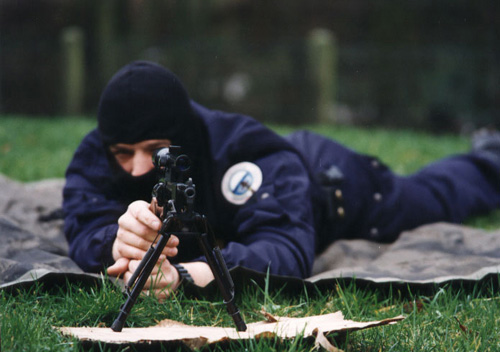 |
GIGN, France GIGN, also known as the National Gendarmerie Intervention Group as a unit of the French Armed Forces, was formed in 1973 -- also after the Munich massacre in the 1971 Olympic Games. Its goal was to prepare for possible future responses to the aforementioned attacks and the Group was reorganized in 2007 for expansion. It is also renowned for its swift responses and proficient combat capability in hostage rescue and anti-terrorism operations. The current 90-soldier unit is mostly deployed for large-scale intervention, search and protection missions. |
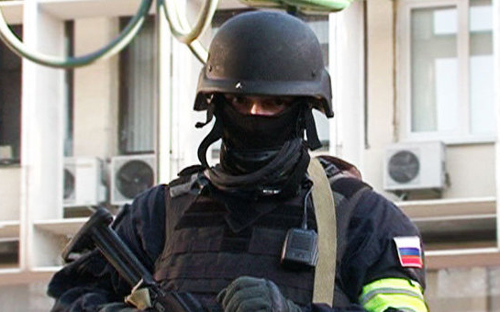 |
Alpha Group, Russia Alpha Group, also known as Directorate "A" of the FSB Special Purpose Center as a force of the Russian Federal Security Service, was founded in the then Soviet Union in 1974 in response to the 1972 Munich massacre. It has played an active role in the first and second Chechen Wars, as well as assisted the Russian federal government in resolving many a mass hostage crisis incident since the 1990s. The current 250-member unit is primarily entitled to prevent and respond to terrorist acts, as well as conduct some covert operations -- even abroad. |
 |
Sayeret Matkal, Israel Sayeret Matkal, also known the General Staff Reconnaissance Unit as a unit of the Israel Defense Forces, was originally part of Aman's Unit 157 and began to operate independently in 1958 after the model of British Army's Special Air Service. It is renowned for its proficient intelligence-gathering capabilities and also "Operation Thunderbolt," more commonly known as "Operation Entebbe," in which more than 100 airplane hijacked passengers were rescued. Except for getting strategic intelligence from abroad, Sayeret Matkal is tasked with counter-terrorism and hostage rescue missions beyond Israel's borders. |
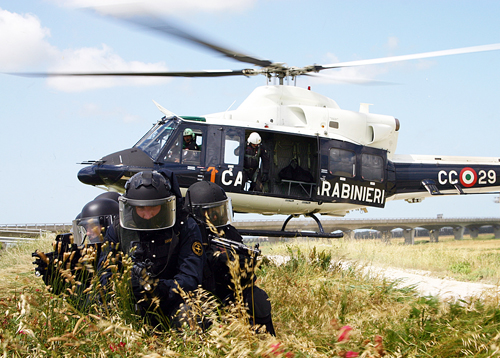 |
GIS, Italy Gruppo di Intervento Speciale, also known as the Special Intervention Group, was created by Italian State Police in 1978 to combat the growing terrorism threat. The troop is globally known for its sharp marksmanship. Currently the GIS, with one hundred or so soldiers, is tasked with anti-terrorism operations, security services and providing training. |
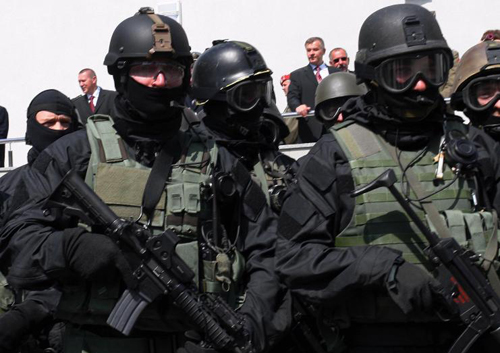 |
GROM, Poland Grupa Reagowania Operacyjno-Manewrowego, also known as the Operational Maneuver Response Group as a unit of the Polish Armed Forces, was officially created in 1990. It is renowned for its quick responses, consummate combat capabilities and team spirit. The GROM is currently deployed in anti-terrorist operations and projecting power behind enemy lines. |
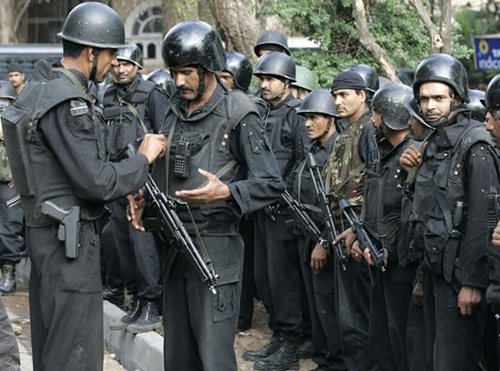 |
NSG, India The National Security Guard, set within the Central Armed Police Forces structure in India, was created by the Cabinet Secretariat under the National Security Guard Act of the Indian Parliament in 1986. It is known for its high-tech anti-terrorism outfits and brilliant feats in safeguarding the unity of the country. The NGS is currently deployed in counter-terrorism activities and provides a second line of defense for India. |
Source: China.org.cn
Web editors: wangnan1@globaltimes.com.cn; yangruoyu@globaltimes.com.cn
Posted in:
